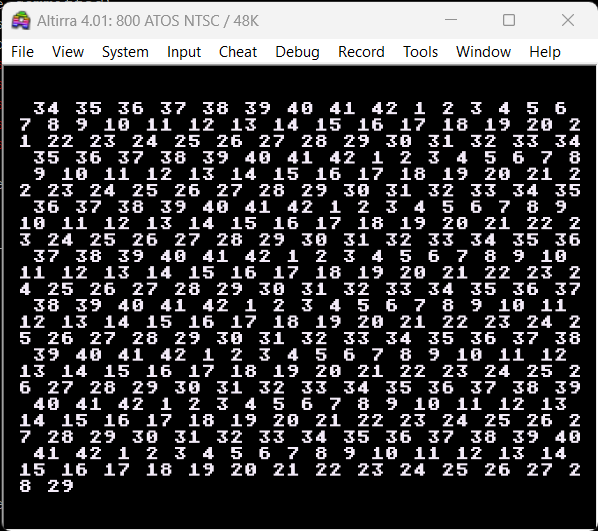MATHEMATIC ROUTINES: FAST OPERATIONS (USING ADD)
This example will show the use of fast integer operators, with the use of ADD instruction. Those instructions will operate without the use of intermediate results, in order to give the maximum throughtput in adding values. In this particular example, the ADD will be used in a form of "controlled loop". So a loop that should stop when a given variable reach a particular valure will continue forever, since ADD will limit the value of the variable between a range that is in the limit of the loop.
source
compile
sandbox
issues?
back to examples


